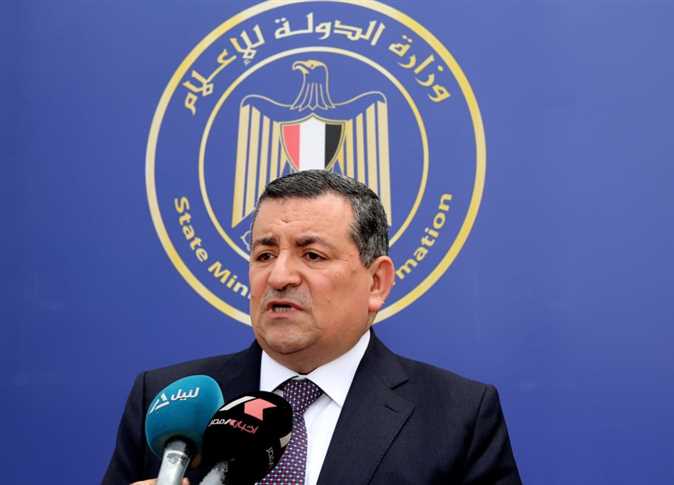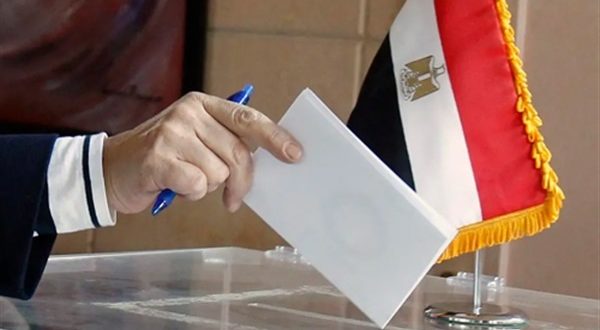Whilst the Egyptians were waiting for the announcement of the resignation of the transport minister after repeated train accidents and dozens of deaths, or the resignation of the health minister after the collapse of the medical system due to corona, the government announced the resignation of the Minister of Information Osama Heikal. He said that his resignation is due to “special circumstances.”
Osama Heikal made several prominent headlines over several crises and conflicts during his tenure in the new ministry, raising questions about whether the decision was dismissal or resignation. The ambiguity of the answer to this question increased after the ministry deleted its official page from Facebook as soon as the resignation was announced. When you search for the ministry, a message appears that “the page has been cancelled.”
Heikal is also the Chairman of the Board of Directors of the Egyptian Media Production City, which includes the vast majority of the headquarters and studios of Egyptian, Arab and international television and radio stations. After the approval of the Egyptian constitution in 2014, the Ministry of Information was abolished, to be replaced by the Supreme Council for Media Regulation and its affiliated bodies. In December 2019, the Ministry of Information returned under the name Ministry of State for Information. Heikal was chosen as its head, becoming the second time he assumed this position that he had previously held following the January 2011 revolution, for five months.
The Egyptians did not forget the fierce battles that took place recently between Heikal and many media professionals close to Abdel Fattah Al-Sisi’s regime after the minister criticised the media performance. At the time, the minister said that “the ages are less than 35 years, and they represent about 60 per cent or 65 per cent of the society. They do not read newspapers or watch television.” He called on authorities to think about these groups’ lifestyles and talked about some of them following the opposition media outlets abroad.
Heikal’s exit from the ministry also comes after the House of Representatives agreed to summon the minister for questioning, a procedure that theoretically paves the way for withdrawing confidence from him. He twice apologised for attending to face the accusations from parliamentarians regarding financial and administrative corruption cases.
Broadcasters and journalists working for newspapers and satellite channels owned by the regime or close to it launched a sharp attack on Heikal, considering that he was repeating the statements of the “enemy” media. They meant the Egyptian opposition channels abroad. He was also accused of providing the opposition media with “fertile material to undermine the reputation of the Egyptian media.” Newspapers owned by the intelligence services reached the point of describing the minister as a “tool in the hands of the Muslim Brotherhood.” Heikal commented by saying that certainly there was a “hidden hand running the attack on him.” He was completely silent about the leaks that were circulating about his phone calls. He seemed content with the two posts that caused more strikes on him at the time.
Egyptians used to describe the regime’s media outlets as “media arms.” Sisi used this term when he was defence minister to talk about his hope to form media outlets that defend the regime. Egyptians also use the term “Samsung Media” to refer to the unified media messages announced via satellite channels sent to everyone via a Samsung device. A broadcaster revealed that by mistake, she continued reading the news to finally reach the phrase “sent from a Samsung device.”
Apart from speculation about the circumstances of Heikal’s exit and given the official statement, an Egyptian minister resigned for the first time in a long time. It is a rare event that caught the attention of some. The wording of the resignation statement, which includes the phrase “for special circumstances,” indicates that there is something below the surface. In contrast, others believed that it was a dismissal rather than a resignation.
Commentators considered that the resignation confirms that the conflict is settled for the most powerful within the system. They compared the matter with the widespread criticism directed at Transport Minister Kamel Al-Wazir, who has a military background. He continued in his position, despite the recurrence of a number of train accidents over a short period of time. He refused all calls to resign. On the other hand, observers have bypassed the resignation order, given that its circumstances are known and do not need an explanation, trying to look to the future to anticipate the fate of the Information Ministry itself. Heikal had taken over after the regime dissolved it for years, and they wondered who had been promised the role after Heikal’s departure?
The resignation was not the only rare event related to Heikal. He was exposed to something unprecedented in the history of the Egyptian media, which is broadcasting a leak related to the minister himself. The wing of the regime, opposed to Heikal, chose to strike him in the heart of his power, with Channel 1 of official Egyptian TV. They leaked an old phone call of him with the head of his former party (the Wafd Party) Sayed Al-Badawi, in a precedent that sparked widespread ridicule and sharp criticism on social media platforms.
The broadcaster Wael Al-Ibrashi, who broadcast the leak, said that Heikal became “a hero for the Brotherhood and Al-Jazeera channels within hours and did not respond to that, so he became an opponent of a media that he came to support, and a hero of a media that he came to fight.” He added, “The information minister lost his compass, lost his way, and raised the approach of clashing with everyone and with the media that supports him.” Al-Ibrashi asked, at the end of his speech about Heikal: “How can the information minister continue in his position after he entered into a state of severe rivalry with all the different Egyptian media?”
Heikal worked before the January 25 revolution, 2011, as a military editor and delegate for Al-Wafd newspaper in the Ministry of Defence, before becoming information minister in Essam Sharaf’s ministry. This ministry was formed by the military council that ruled Egypt after the resignation of former President Hosni Mubarak in response to the January 2011 revolution. Heikal is affiliated to the ruling regime’s military wing. He is the army’s man in the government. At the same time, media professionals and newspaper editors work in media outlets that are mostly owned by companies affiliated with the security and intelligence services or are directly subordinate to them. They considered that reveals a struggle between the authorities of power over areas of influence in the media.





Recent Comments